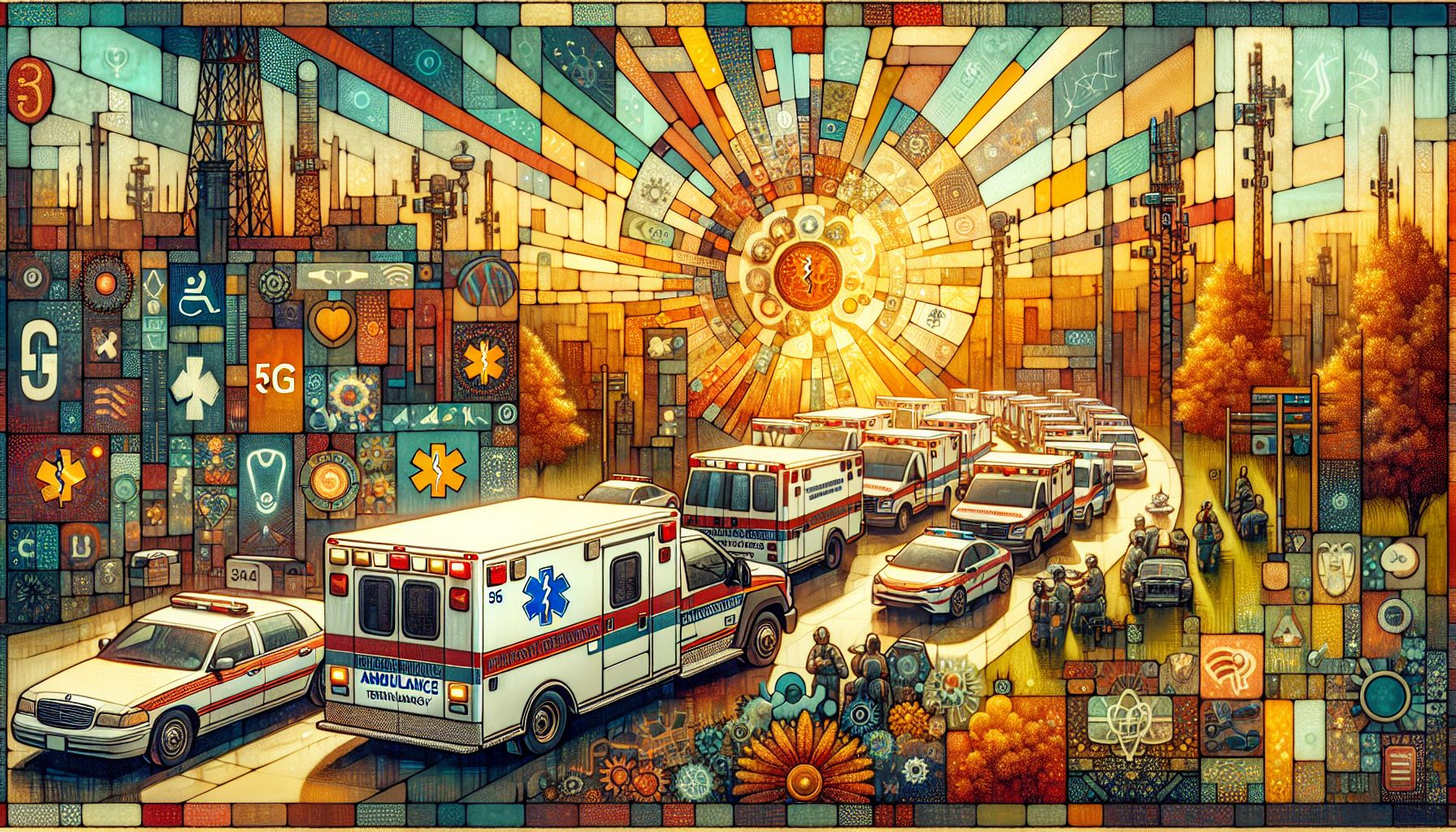5G Revolution in Healthcare: Transforming Emergency Response and Patient Care

Netherlands, Wednesday, 16 October 2024.
A groundbreaking project integrates 5G technology with healthcare, promising to revolutionize emergency medical services and patient care. From smart ambulances enabling real-time consultations to improved hospital efficiency, this initiative aims to save critical time and enhance treatment outcomes across regions.
The Role of 5G in Healthcare Innovations
5G technology is set to revolutionize the healthcare industry by enabling faster and more reliable communication between medical professionals and patients. At the heart of this transformation is the 5GMHI project based in Stockholm, Sweden. Coordinated by Region Stockholm and involving partners like Telia Sverige AB, this initiative focuses on leveraging a private 5G network to enhance healthcare services and building management processes[1]. Key innovations include drones delivering Automated External Defibrillators (AEDs) and a Real-time Locating System (RTLS) for tracking hospital assets[1].
Smart Ambulances and Real-Time Data Transmission
The integration of 5G in emergency medical services is exemplified by companies like Medulance, which utilizes 5G-enabled smart ambulances. These ambulances facilitate real-time consultations with emergency doctors, significantly reducing response times from 45 minutes to just 11 minutes in some areas[3]. The AR7091 Industrial IoT Gateway supports this advancement by ensuring robust, high-speed connectivity inside ambulances, allowing for rapid data transmission and remote diagnostics[4].
Enhancing Hospital Efficiency and Patient Outcomes
Beyond emergency services, the 5GMHI project aims to improve hospital efficiency through advanced technologies such as augmented and virtual reality, integrated with Building Information Management (BIM) and Geographic Information Systems (GIS)[1]. These innovations optimize building management and energy efficiency, directly impacting patient care quality. Cisco’s role in providing secure 5G connections further underscores the importance of cybersecurity and compliance in healthcare data management[2].
The Broader Impact of 5G on Healthcare
Globally, 5G technology is transforming healthcare by enabling remote monitoring and diagnostics, thus improving patient care outcomes and reducing costs[2]. The GSMA highlights 5G’s critical role in achieving sustainable healthcare solutions, emphasizing its potential to enhance mobile diagnostics and remote consultations[5]. As these technologies continue to evolve, they promise to bring significant improvements to healthcare delivery worldwide.

